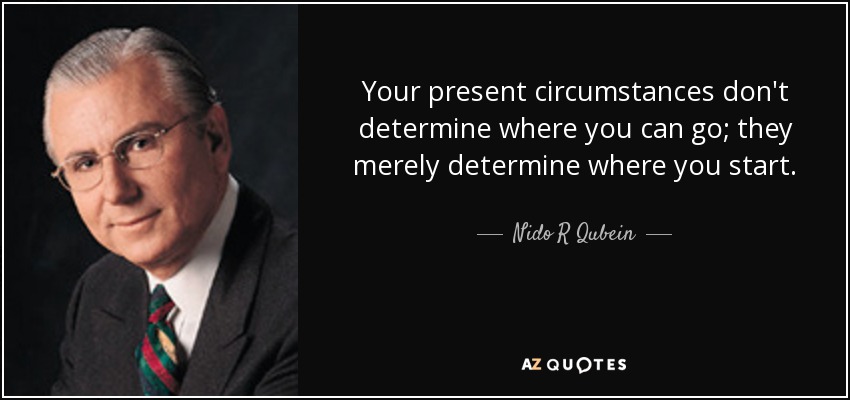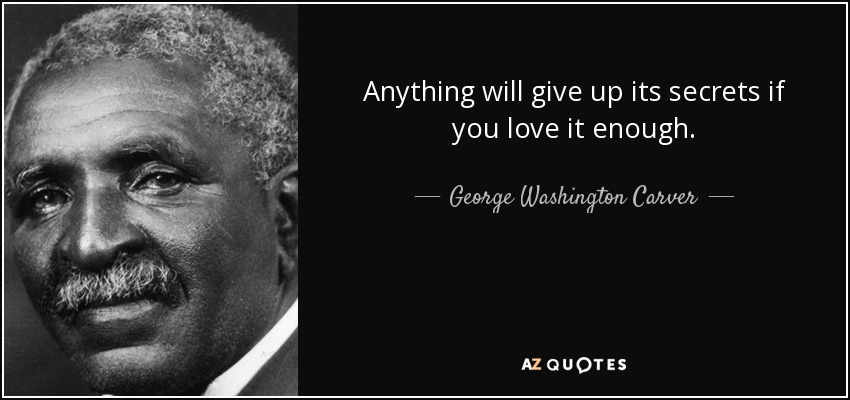Click here to return to Blog Post Intro

Introduction: How’s Your Marriage Really?
Snapshots of different marriages
1. Great!
You wake up feeling lucky (or blessed, depending on your point of view) because your marriage is so good. It’s rare and it’s never permanent, but there are times when it’s just about perfect. As good as it gets.
A husband and wife working together on their marriage and on themselves as individuals. It’s a season . . . a really good one, but still a season.
Here’s what’s going on when you’re in that “good place”:
- There’s open communication, even about tough stuff like sex. Conflicts are resolved without a lot of emotion.
- You have a shared vision for your marriage and family.
- You’ve figured out your roles, with the “blessing” of the other.
- There’s a healthy level of respect, never threatened by disagreements on small stuff. No one yells. No one pouts. You work stuff out.
2. Good
Your marriage is “okay.” Things are stable. Consistent. There’s general harmony, peace, cooperation and collaboration. There’s a routine to life together.
But peace is not defined by the absence of war. Nor is a great marriage defined by the absence of conflict. It’s easy to take things and people for granted. Sometimes what feels like peace to you may feel like boredom to her.
You might have a good marriage that never becomes great because you took it easy and settled for status quo.
Surveys show:
- Women are less happy in their marriages than men
- Women are more likely than men to see problems in their marriages
- Women are more likely to initiate divorce (women ask for divorce two-thirds of the time), and are more than three times as likely as their former husbands to have strongly desired the divorce.
You may be so confident in your wife’s love that you’re ignoring her, putting everything into your work. For a little while, that may be fine. But it’s become standard. And you’re into your work because you’re getting strokes, bonuses and promotions. She likes the money part for sure, but if you asked, she’d rather have more of you. Because you’re so confident in how great things are and you’re afraid you’ll have to do something different, you’re not going to ask. This is the stuff guys do when they see their marriages as “okay.”
3. Poor
Your marriage is a struggle . . . or worse. There’s friction and frustration almost daily. You argue over big things and little things.
Maybe she’s a stay-at-home mom who’s decided she doesn’t want to waste the years she has left doing your laundry and cooking your food. You’ve smothered her. She wants to breathe. Every day, there’s more and more silence. Fewer friendly conversations. More anger. More frustration. Less patience. Less agreement — on anything.
More big clues: You and your wife keep clashing over the same things . . .
- Money. So much debt you can’t breathe. No appreciation for how hard you’re working. Never satisfied.
- Sex. Well, that’s a sore subject. It’s gotten less and less frequent.
- Friends. Yours are yours. Hers are hers.
Step One: Decide & Tell Her
Decide you love your wife, that you want to spend the rest of your life married to her, and then tell her — with downward voice inflection — say it and mean it.
It’s necessary. And it’s nonnegotiable. Every other step is useless if you don’t do this one. Why? Because your heart won’t be in it. In choosing to stay married, you’re choosing a path that’s long and hard, longer and harder than any you’ve ever walked.
Love is a choice you make . . . not a hole you fall into.
Whether you feel it or not, you’ve got to choose to love your wife. And not just a day, a week or a month…you must choose to love her until you die.
WHAT IF MARRIAGE IS AN INSTITUTION?
Think about why humans set up institutions. Institutions are set up to sustain important activities over time.
Love initiates marriage. But marriage sustains love.
As leadership expert Andy Stanley says, “Somebody has to go first. By going first, the leader furnishes confidence to those who follow.” (See some previous summaries of Andy’s books on When Work & Family Collide and The Principle of the Path)
When you, the husband, lead with iron-clad commitment, you give confidence both to yourself and to your wife. But it has to be real. You have to make the long-term, irreversible decision — saying, “I’m all-in.” And then be “all-in.” Regardless. When people are telling you the truth, they telegraph it. When they don’t mean what they say, they telegraph that too.
Most importantly, you must tell her you’re making this commitment for yourself — for your benefit — not to win her heart.
You need to tell her you love her and won’t ever leave, no matter what.
A woman’s need for security is near the top of her list. Your wife wants to believe you love her and you’ll never leave. You owe it to her to decide, and then tell her.
When you bail on your marriage, you give your kids permission to divorce when they get married.
Radical husbands commit and stay committed.
Step Two: Burn the Ships
Eliminate all your escape routes. Whether they exist in your mind, on Facebook, in your address book or on the other side of town, you must seal off any open doors to other relationships. Your wife must become your only source of romance.
You have to decide to eliminate any alternatives to your wife. This isn’t a passive mental activity. It’s active. It’s actually doing something — doing whatever it takes to make your wife your only option, your only source of romance. Until she’s the only one, you won’t focus on her and do all the things you need to do.
The phrase “burn the ships” comes from the legendary story of Spanish Conquistador Hernando Cortez, who landed in Mexico in 1519 with a few hundred men, eleven ships, and plans to seize the great treasures of the Aztecs. Outnumbered by an army who’d turned back these kinds of conquests for six centuries, what would have to happen for Cortez to succeed where others had failed? Out of the blue, he uttered three words that changed everything. “Burn the ships.”
Then Cortez said this: “If we’re going home, we’re going home in their ships.” All-in. 100-percent committed. Until-death-do-us-part committed.
Some husbands leave the door open for an affair: “If this gets bad, I can always get ‘supplemental love’ on the side.” Others are not faithful with their minds. Eighty-six percent of American men between 18 and 26 years old have used porn in the last year. Our minds can create imaginary ships—ships our wives can never compete with.
FOUR STAGES OF SHIP CONSTRUCTION
- Innocent Snapshot. Unless you’re blind, you’re going to see beautiful, sexy women.
- Intentional Video. Let’s say you don’t look away. You keep looking.
- Imagining the Movie. If you stay focused on these images, you’re moving in deeper.
- Doing the Deal. Simply stated, you put skin on the woman you imagined. You find a ship you can actually board.
Golf legend Bobby Jones said, “The game of golf is played mainly on a five-inch course, in a space between your ears.” Marriage is similar. It requires exclusive and singular focus on one woman.
If you’re going to be a radical husband, you have to burn the ship. You have to make your wife your single source of romance, your marriage the primary focus of your attention and energy.
Step Three: Drop Your Expectations
You’ve created expectations for your wife. Not only has she not met them; she’s done with trying. Done with feeling like a failure. Your only hope is to drop your expectations . . . all of them . . . and love her just as she is.
If you’re a normal husband, you’ve put expectations on your wife, and she didn’t meet them. Little by little, you created a win-lose situation. If she did what you expected, you were happy — at least not unhappy. But if she didn’t measure up, you weren’t happy and you let her know. Sometimes verbally. Usually nonverbally. The silent treatment.
Now hear this… Anxiety comes from unmet expectations.
Your anxiety about your wife and marriage is coming from your unmet expectations. You (or she) may have justified some really stupid decisions by blaming your anger: Since you care so little about me and my needs, I’ll go find someone who will.
Expectations are the enemy of intimacy. Stop putting expectations on your wife and watch things change. It’ll blow you away. You have to decide that you’re going to accept your wife just as she is, regardless of how you wish she were.
Campbell writes, “One of the things that excited me about writing this book was the idea of giving guys things to do and not things to be. It’s really hard to change yourself and impossible to change someone else. But if you work at it, you can ‘move the needle’ by not putting expectations on your wife.”
Like the old Chinese proverb says, “A journey of a thousand miles begins with a single step.” The first step here is holding your tongue and overhauling your attitude.
We’ve all heard, “Don’t sweat the small stuff.” Well, it’s all small stuff. In the context of life…compared to the significance of divorce, a broken home, latchkey kids and multiple mamas at weddings…it’s all small stuff. You can do this. Radical husbands drop their expectations.
Step Four: Love What She Does
Your wife’s heart is warmed when she sees you loving what she loves. It can’t be fake or manipulative. It has to be real and sustained.
If you want someone to love you, love what they love — especially their kids.
STUDY YOUR WIFE
Maybe your next problem is that you don’t know what she loves.
Anytime you love what she loves, you warm her heart. If you become a little more involved in making your home into the place your wife visualizes it to be, you might be surprised at her response. The more interest you take in home…the more you get into her frame of reference and stop battling against her vision of home…the more likely it is she’ll warm up.
If your wife works outside the home, get interested in her job. Not to pry, not to give advice or try to “fix” anything, just to express genuine interest where she spends large chunks of time and energy. Express more than a passing interest in her work, her coworkers, her stresses and her dreams.
Radical husbands put away their selfishness and figure out what their wives love. Then they love it too.
Step Five: Create an Environment of Acceptance
Your wife will gravitate toward an environment of acceptance and away from an environment of rejection and criticism.
People can’t change other people. Period. All you can do is create an environment that will feel different, and hopefully…maybe, someday…they will.
EXPRESS GRATITUDE
Being grateful…and expressing it to your wife…does more to create an environment of acceptance than anything else. Who doesn’t want to be appreciated?
And remember — unexpressed gratitude feels like ingratitude. Nothing makes a person’s heart colder than feeling unappreciated.
A lot of men who are leaders at work think they’re automatically anointed “King Poobah” when they get home. It doesn’t work that way. You may have authority at work, but you’re a collaborator at home.
Here’s a new one for you. Ask her what you can do to help. Volunteer your services, just like you would with a business partner.
THINK DIFFERENTLY
If you like the idea of creating an environment of acceptance, consider these three ideas:
- Lengthen your time horizon. What’s your long-term goal here? Sacrifice your selfish, I want it now, for the longer view.
- Don’t sweat small stuff. Teach yourself to overlook things. Ignore more.
- Find the positive. Start by saying something positive every time you say something negative. Work to get to a one-to-one ratio, positive for negative, and then grow from there.
The enemy of acceptance is rejection — and to your wife, criticism feels like rejection, plain and simple.
WHAT IS CRITICISM ANYWAY…REALLY?
Criticism requires a standard of comparison. The critic has to have a picture of what should or could be in his mind.
Clear standards are rare. Most of what we compare people to is conjured up in our minds. It’s how my mama did it.
WHY SO SENSITIVE?
Little girls get a ton of their self-esteem from their dads — from guys like you and me. Very few dads carefully build and protect their daughters’ self-esteem when they’re little.
OFFENSE AND DEFENSE: ACCEPTANCE AND THE ABSENCE OF CRITICISM
In football, they say offense wins games but defense wins championships. Think about creating acceptance as playing offense…scoring points. Defense is dropping the criticism. Start there.
Radical husbands don’t criticize their wives. They create environments of acceptance instead.
Step Six: Learn to Listen
A woman who feels she has no “voice” is a woman whose husband does not connect to her feelings.
Show me a woman with no “voice,” and you’ll find a woman whose husband has failed to acknowledge his wife’s feelings.
BABY LISTENING STEP 1 — ATTENDING
Attending is the first level of listening. It simply involves positioning yourself to pay attention when your wife speaks and to let her know you’re listening.

Face her, if at all possible. Keep your hands still. Don’t fidget, tap your fingers, wring your hands or twist your wedding ring (which, by the way, behavioral scientists say signals that you’re in a situation you want out of).
With this posture, you’re telling her, “What you’re saying is important enough for me to sit up and take notice.” She will decide if you’re listening by your eyes. She can’t tell if your ears are tuned in, but your eyes will tell the story. Establish and maintain appropriate eye contact.
BABY LISTENING STEP 2 — CONTENT RESPONDING
Now that you’re “tuned in,” looking into her eyes and paying attention, start listening for content — the what of what she’s saying. Then respond by letting her know that you really heard what she said.
As soon as you think you know what she’s saying, you tune out. You’ll finish her sentence for her, or you’ll drift off and start subconsciously planning what you’re going to say in response. Either way, you’ve stopped listening and people know it, especially our wives.
Why is it so hard? For one reason, we’re always in a hurry. We just want the minimum, the essence, the least amount of info so we can decide what to do next. We don’t really care what they’re saying. We just want to get what we need and get going.
BABY LISTENING STEP 3 — THE “FEELING” RESPONSE
Here’s where you can start to connect with your wife’s feelings and make real progress. Listen to what your wife is saying (the content), but also pay attention to her emotions.
What word describes the emotion she is feeling right now? Be ready, because listening to her feelings and using the right “feeling word” will open her up.
One key: The emotion you’re trying to read is her emotion right now. Feeling words range from generic to specific. The more specifically the word matches what a person is feeling at a moment in time, the more that person will feel he or she was listened to (and cared about). The more generic the word, the weaker the impact.
Listen to your wife, but don’t try to fix things for her! Ninety-nine percent of the time, she just wants you to know how she feels. She does not want your opinion, your assessment of the situation, your prescription for the cure or your advice about what she should say or do. If she wants your advice, she’ll ask for it. My friend Ted sometimes asks his wife, “Do you want me to fix it or feel it?” She almost always answer “Just feel it.”
If you just can’t help yourself, if you just have to say something, try this, “Is there anything I can do to help you with this?”
Listening is loving. Radical husbands listen.
Step Seven: Give Up Sex
Recognize that your drive for sex may be killing your marriage. Give it up. If sex happens, it has to be mutual.
The dictionary says intimacy is “emotional warmth and closeness.” You know when you’re “in the zone” of warmth and closeness. You know when you’re on the same page.
For women, the best kind of sex…the only desirable kind of sex…is from the overflow of intimacy. It’s when she loves you so much in the moment, she wants to go to bed with you.
5 FEET FOR 5 MINUTES
For years, Campbell taught this simple little practice called “5 for 5.” It’s made a huge difference for a ton of guys. Here’s how it goes… When you walk in the door, go directly to within five feet of your wife. Don’t look at the paper; don’t play with the dog; don’t shuffle through the mail. Go directly to her. Then stay there for the first five minutes you’re home. Make eye contact. You might give her a hug or maybe a kiss, depending on the dynamics of your relationship, but that’s not the point. What matters is that you “vote” your first minutes of coming home to the person who is first in your life. You camp out in her personal space. You can give nonsexual touches. Touch her shoulder. Squeeze her hand…that kind of thing. But your mission is to listen to her. “Attend” to her. Ask her about her day, but this time, really listen and care about what she tells you. Stay in her frame of reference.
Kids love to see their parents loving each other. It makes them feel secure.
“5 feet for 5 minutes” isn’t magic. But it’s a practice that can strengthen your relationship and it’s an on-ramp to intimacy.
Instead of trying to make it happen, radical husbands create intimacy, choose exclusivity and let sex come to them.
Step Eight: Learn to Lose
Men have this instinctive need to win, to be right (or at least not be wrong). We destroy our wives with our thoughtless push to prevail.
A big part of being male is winning…and not knowing how to lose. Most of us are competitive, whether we want to admit it or not.
What competition are we learning to lose? Conflict. Any conflict.
Conflicts evolve in three distinct stages:
- First, there’s the inciting incident. Most arguments stem from things that are spoken.
- The next phase of the argument is the trip to the closet. In this phase, she’s gone to the closet (where memories from the past are stored) and pulled out a perfect example. The true hurt comes when it gets personal. You say things like, “You’re just like your mother,” or she says, “You’re not the man I thought you were.” These are the words that can’t be taken back. They break emotional bones. They leave marks and scars.
- The most helpful idea is to “drop the rope.” Campbell’s friend authored this concept and it’s helped a lot of people. Imagine a tug-of-war. You’re holding one end of the rope, and she’s holding the other. As soon as you feel her tug, you drop the rope. You don’t resist. The facts are still the same, but the pressure never materializes. You simply refuse to tug back. You opt out of an emotional response. Now don’t let this turn into the silent treatment. That’s not good.
Remember, in “Don’t sweat the small stuff,” it’s all small stuff. Counselors are constantly amazed at the petty things that start huge fights — fights that lead to contempt and, ultimately, divorce.
Radical husbands drop the rope. Radical husbands learn to lose.
Step Nine: Set Her Free
If you free the bird and it comes back, it’s yours. If you set it free and it doesn’t, it wasn’t yours to begin with.
You don’t have a wife like you have a car. She’s not a possession. She’s a person.
A lot of men like to be in control of women. And women resent it and run from it. They want the same thing we want — what all people want — autonomy. They want to make decisions, be trusted, feel empowered and prove their competence.
Think about what she really enjoys that she’s not able to do right now. If she needs a babysitter for the kids, then take the initiative and find one for her…or do it yourself. Whether she works inside or outside the home, giving her free time is going to be hard.
You can “let go” and empower her to do things she wants to do. And she’ll still come back to you. Can you muster up the courage to be a radical husband and set her free?
Step Ten: Think Long-Term
It’s not just about what comes next, but what your life will look like down the road when your kids are married, you’re a grandfather, you’re not as sexually active or attractive, you’re old and sick.
“Live for today, for tomorrow never comes,” is a lie. Tomorrow will come. You will get older. Your wife will change.
Impatience is what gets a marriage in trouble. You want what you want, and you want it now. Same with your wife.
The divorce rate among young couples has dropped below 26 percent. Why? Because they’re living together first. Have sex, live together, then make commitment and get married.
Decisions are choices between the greater of two goods and/or the lesser of two evils from the perspective of the person facing the decision.
Robert McKee’s book taught this “greater of two goods-lesser of two evils” concept. Campbell changed it a little to make it useful for real life and not just storytelling: “We know from life, decisions are far more difficult to make than actions are to take. We often put off doing something for as long as possible, then as we finally make the decision and step into the action, we’re surprised by its relative ease. We’re left to wonder why we dreaded doing it until we realize that most of life’s actions are within our reach, but decisions take willpower.”
Long-term: Imagine how proud you’ll feel when you and your wife celebrate your fiftieth wedding anniversary with your children and grandchildren. Think about the legacy of loyalty, devotion, commitment and forgiveness you’ll pass down.
Thinking long-term leads you to a different decision than thinking short-term. It will take commitment, selfless commitment. And the rewards? A great home. A happy marriage. Healthy, balanced kids with two parents. That’s like fresh, cool water to a man dying of thirst. And yes, being a radical husband takes some faith.
Step Eleven: Stop Talking and Do Something
There comes a time in a marriage when the more you talk about it, the more hopeless it seems. Shut up and act.
Leaders initiate. Taking responsibility for your marriage means taking the initiative. Making plans and executing.
In his book Love Does, Bob Goff tells us: “Love is never stationary. In the end, love doesn’t just keep thinking about it or keep planning for it. Simply put: love does!”
Marriage can blow up with the statement, “We have different dreams.”
You can’t make all her dreams come true. But you can pay attention and learn about them. You can respect them.
Radical husbands do stuff. No one steers a parked car. Move.
Step Twelve: Give Up
There’s too much history, too much baggage for this to work. You need a “new you,” a “do-over,” a fresh start. If you’re going to win her heart and keep it, you need help.
More than a few have turned their marriages around by taking this final step. Are you ready for it? Give up. Walk out in the backyard, look up at a star-filled sky, and cry out to God.
Surrender. Campbell surrendered this way, “God, I’ve made a mess of my life and my marriage. I don’t like the person I am. I don’t want to live like this anymore. I lie to myself, my wife, everybody. I feel like crap all the time. I want a fresh start, and I need you to help me, to change me. I’m ready to live my life a different way. I’m ready to be your man, not the man.”
And he explains, “Faith came after I cried out, not before.”
Being sure of God’s love allowed Campbell to trust him for the outcome. Of everything. This is why he was able to survive and even thrive in a marriage that was difficult.
With God in control, you’re not responsible for what happens. God is.
With God in your life, you have a “third party” involved in your marriage, a very important third party. That third party carries a lot of weight. He matters because he loves both of you. He wants it to work.
Consider what Solomon wrote in Ecclesiastes:



For your marriage to work, you have to make a commitment and never look back.
Give up. Get down on your knees and tell God you need him. Acknowledge he’s God and you’re not.
A journey of a thousand miles begins with a single step. Will it be toward God? Or away from him?
The Thirteenth Step: A Mentor

Older men love helping younger ones. It’s part of their wiring. Part of their innate calling to want to give back. Younger men who reach out to older guys are rarely turned down. But they do have to ask, and that takes a big serving of humility. When you reach out to a potential mentor, you’re admitting (in a way) that you don’t know it all. That you might need some help. It’s a little like asking for directions. It’s hard to bring yourself to. But the rewards can be infinite, both for you and for the guy who mentors you. You get challenged, perspective, helpful suggestions, experience and insight. He gets meaning, fulfillment and purpose in his life. It’s a win-win.




